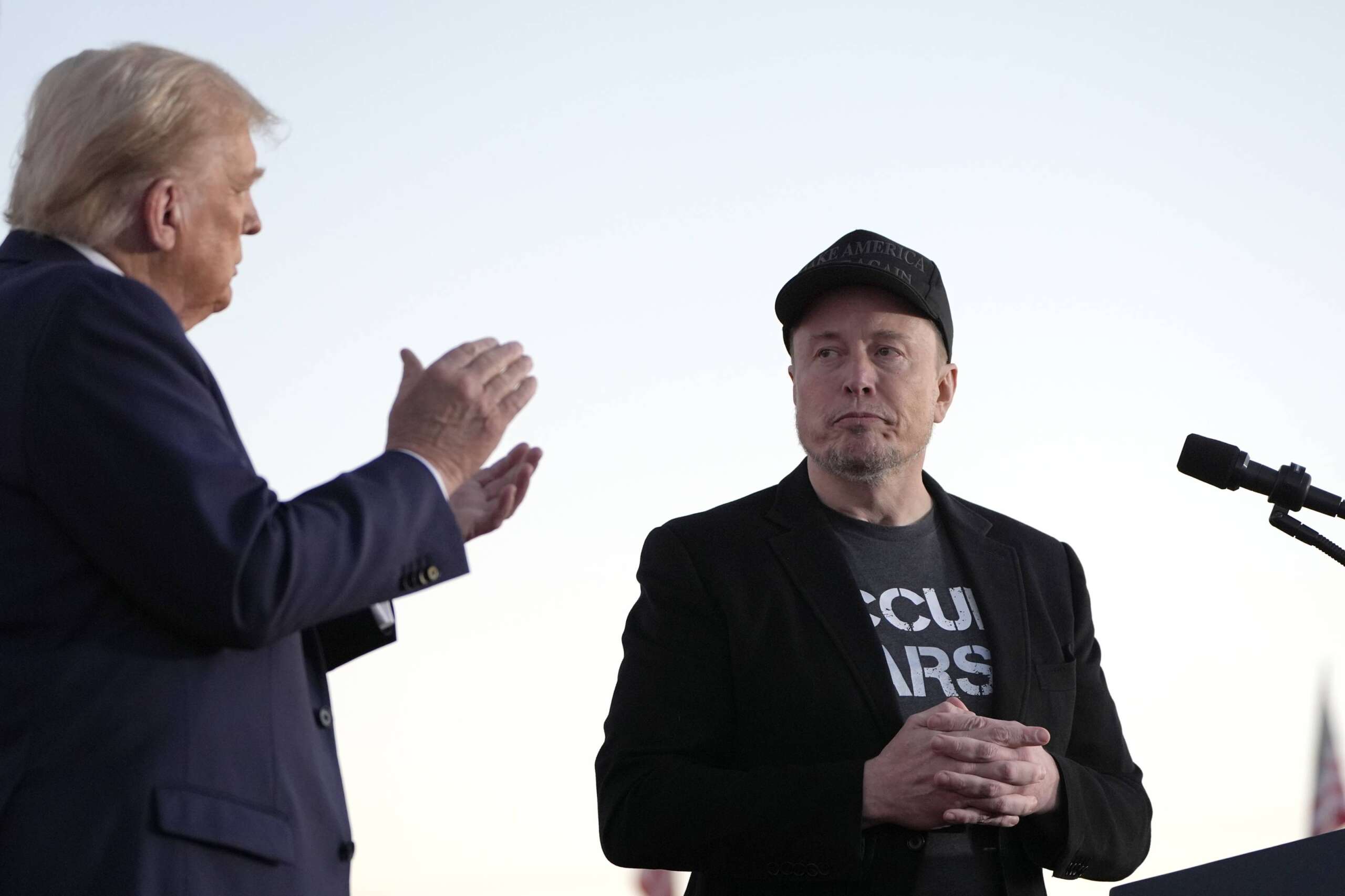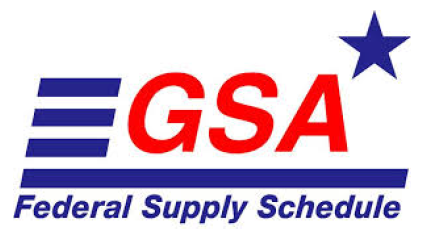
Over the first three weeks of the Trump administration’s “shock and awe” approach to reorder the government, contractors have been unusually quiet.
From the canceling of contracts to efforts to reduce the federal workforce, industry and their associations haven’t publicly vocalized any broad concerns or offered any true opposition or support for the US DOGE Services.
At no time in the last 30 years has industry publicly sat back like they are today and letting things happen to their so-called “partners” in the federal government.
Contractors and their associations speak up quite vocally when Congress teeters on shutting down the government, which could happen again in about a month.
During sequestration in 2012-2013, industry banged the drum about the impact of the cuts.
Even for a controversial contract, like say the Defense Department’s cloud contract called JEDI, industry released their lobbyist hounds on lawmakers and the Pentagon.
But when it comes to reducing the federal workforce or DOGE ending dozens of services contracts or the General Services Administration telling all agencies to review their consulting contracts and considering ending anything that is considered non-essential, which it defines as “any contract that merely generates a report, research, coaching or an artifact,” associations and their members are publicly staying out of the mix, at least for now.
“Everyone is trying to stay out of the firing line, but I do think there is a potential for really significant restructuring of the federal workforce and as a result, the federal contractor workforce,” said one lobbyist, who requested anonymity. “At some point, folks will have to come together as industry and push back a little bit. To me, it’s not heading in a direction that doesn’t do anything but hurt the federal workforce and, in turn, hurt the contractor workforce. In my lifetime of doing this for more than 25 years, I’ve not seen issues that impacted federal workforce and the contractor industry where no one has said a word. It’s very odd to see that and I have to believe they are scared of being singled out.”
Another lobbyist said they were stunned there hasn’t been more pushback from industry.
“I’m shocked that people are so afraid of Trump and [Elon] Musk. This is a direct attack on companies. I don’t know why CEOs and other association leaders haven’t been out there more,” the lobbyist said.
DOGE not at your doorstep
Several associations asked to comment for this story either declined or would only speak on background.
A long-time trade association executive said there is definitely a reluctance by their membership to make waves and stick their proverbial head up.
“I think many companies just want to keep doing their work, and if the process comes to our door step, we will deal with it then vs. bringing DOGE to our doorstep,” the executive said. “We are talking to members about how do we invite the Trump administration in to get a better understanding of their direction and help them achieve outcomes that make the most sense? I think right now industry is focused on the small discussions vs. a big one.”
The one exception has been the Professional Services Council, whose has several members that support the U.S. Agency for International Development.
PSC has actively pushed for USAID to make good on payments owed to its members, some $500 million in unpaid invoices. It wrote a letter to Secretary of State Marco Rubio asking him to address payments for completed work as required by existing contracts and for which contractors had already spent the money.
David Berteau, the president and CEO of PSC, said while it’s not unusual for a new administration to take a hard look at all programs and ensure they align with their priorities, the DOGE effort is an extension of that effort that goes far beyond anything he’s ever seen.
“I think that there’s too much focus currently on what you stop doing, and not enough focus on what you keep doing,” Berteau said in an interview with Federal News Network. .”From a PSC point of view, it won’t surprise you, our view is that to get stuff done effectively in the government, you have to have effective contracts and contractor support. In many cases, there needs to be more focus and attention on what you’re going to keep doing and how you’re going to do it more effectively. If DOGE has two sets of goals, get rid of things we don’t need to do and make more efficient and effective the things we do need to do, we’d like to see more focus on that second piece.”
What are DOGE’s goals?
The lack of transparency and communication from DOGE specifically and the administration more broadly was a common concern among industry experts.
A former government official now works in industry said until there’s more clarity about what the end game looks like around optimizing performance, industry is watching and taking notes.
“The lack of a public vision creates uncertainty,” the former official said. “For some companies, they have to adjust what they are doing or stop doing certain services so communicating that would be helpful and then listening to the stakeholders involved with regard to that plan would be helpful too.”
DOGE, just today, launched its website and asked on a post on X for more feedback on what’s missing and what else people want to see. The website doesn’t offer any more details about its long-term goals or plans to drive more efficiencies, but the assumption is more details are coming.
In the meantime, the DOGE X account is highlighting the tens of millions of dollars in cancelled contracts. To be fair, much of the so-called savings is more cost avoidance because, like many contracts, the totals are based on the ceiling of the award not total spend.
One lobbyist pointed out that even terminating contracts for convenience could cost the agency money based on the terms and conditions.
But as several industry experts said, there are good reasons agencies put these contracts in place and the decision to just cancel them can have serious negative impacts on the ability of government and contractors to support those things that DOGE and the agency want to keep going.
Several lobbyists questioned why the assorted associations aren’t being more vocal.
“At end of day, the industry association is there to take the so-called bullet for their members,” the first lobbyist said. “I tell my clients all the time if they ask me should I join an association, I say if you want someone in front of you to fight for controversial issues or issues you don’t want your name attached to, that is what trade associations are there for.”
The second lobbyist added that there isn’t a strong lobbying organization that represents contractors any more. A lot of them, the person said, are too cautious and don’t’ want to draw the ire of Trump or Musk.
Uncertainty breeds cautiousness
But a third lobbyist cautioned against contractors jumping out too soon. The person said there are a lot of unknowns and industry is taking a wait and see approach, at least publicly.
“With so much uncertainty, it’s hard to figure out what is the lever to pull. You can’t get in touch with agencies right now. Those leaders have so much chaos to deal with and the Democrats don’t have a lot they can do other than protest and gear up for future oversight. I think companies are hanging back right now because there is so much uncertainty,” the lobbyist said. “There may be opportunities for trade associations in the future to promote efficiencies, but there is so much chaos, fear and inability to land a message, it’s difficult right now.”
The lobbyist added that individual companies will remain in more of a defensive posture for the short term as they assess their book of business based on the agencies they work with and try to figure out where their risks are. They also are preparing arguments if folks start asking questions about value of any specific contract.
“There are so many unknowns and it’s not clear that engaging three weeks in will have a lot of benefit,” the lobbyist said.
The association executive added there are more nuanced conversations happening as well as a lot of industry is on board with the efficiency initiatives DOGE is pursuing.
“I think conversations are probably discreet to a specific agency to which cuts are happening,” the executive said. “That is why you aren’t seeing these broad discussions right now. Every approach to every agency seems to be different depending on mission of agency.”
Some contractors ramping up efforts
But even with that uncertainty, there is a strong expectation that DOGE will turn its attention to contractors in a bigger way, particularly system integrators.
The second lobbyist said contractors who provide people or “butts in the seat,” and some of the “beltway bandits” should expect more attention from DOGE in the coming months.
The memo from GSA is a good example of that attention. While few disagree with the concept that reviewing contracts and determining their value is important, the idea of cutting and slashing all contracts and then figuring out if they are important is not a sensible approach.
Behind the scenes, however, some contractors are ramping up.
According to recent public lobbying disclosures, several large contractors have hired new government affairs firms with strong connections to the new administration, and a few even mentioned a focus on DOGE.
For example, Booz Allen Hamilton, Zscaler and ServiceNow all hired Ballard Partners, a lobbying firm with deep ties to the Trump administration, according to several other government affairs executives.
CGI, meanwhile, hired the Cocoran Partners.
Zscaler specifically mentioned DOGE and the Defense Department as an area of lobbying interest.
“I’ve been to the hill and had contact with lot of folks, primarily on the Democrat side. I’ve talked to committee chairman and have been trying to make the case about what vendors are doing is important to the agency,” said the first lobbyist. “I’m trying to explain how this will impact their state. Right now, the Democrats can only do so much at the end of the day and that’s very problematic. I’ve said to my clients if you have relationships with governors, you should call them and explain why you are worried about the impact of DOGE on contractors. There will be an impact on all this stuff across the board as there are a lot of federal agencies and workers in red states and these changes will be felt across the board, but not only within the contractor community, but the broader economic community.”
Even Sen. Mark Warner (D-Va.) said it’s time for the broader vendor community to speak up. He said he met up with the contractors who work in the space industry and met with major defense contractors over the last few weeks. And now that DOGE is moving into DoD, he said the time is now to get involved.
“I charged them to see how we could engage with DOGE, if there are ways to be smart on efficiency. For example, we have way too many lawsuits after a contract is awarded. I’d be happy to move that to loser pays so if you bring a frivolous suit you gain no advantage or move to more fixed price contracts, which give more flexibility and get lower prices. So far contractors have kept their head low because Trump and Musk haven’t moved to DoD but they are moving there next,” Warner said today in a call with reporters. “I would simply say to them you guys need to step up and speak out as you see, in many cases, what is going to be a waste of money because many of these functions are critical to our national security and firing experienced people and trying to rehire newbies or simply using technology to replace individuals, at this stage, will end up costing taxpayers more.”
Copyright
© 2025 Federal News Network. All rights reserved. This website is not intended for users located within the European Economic Area.




